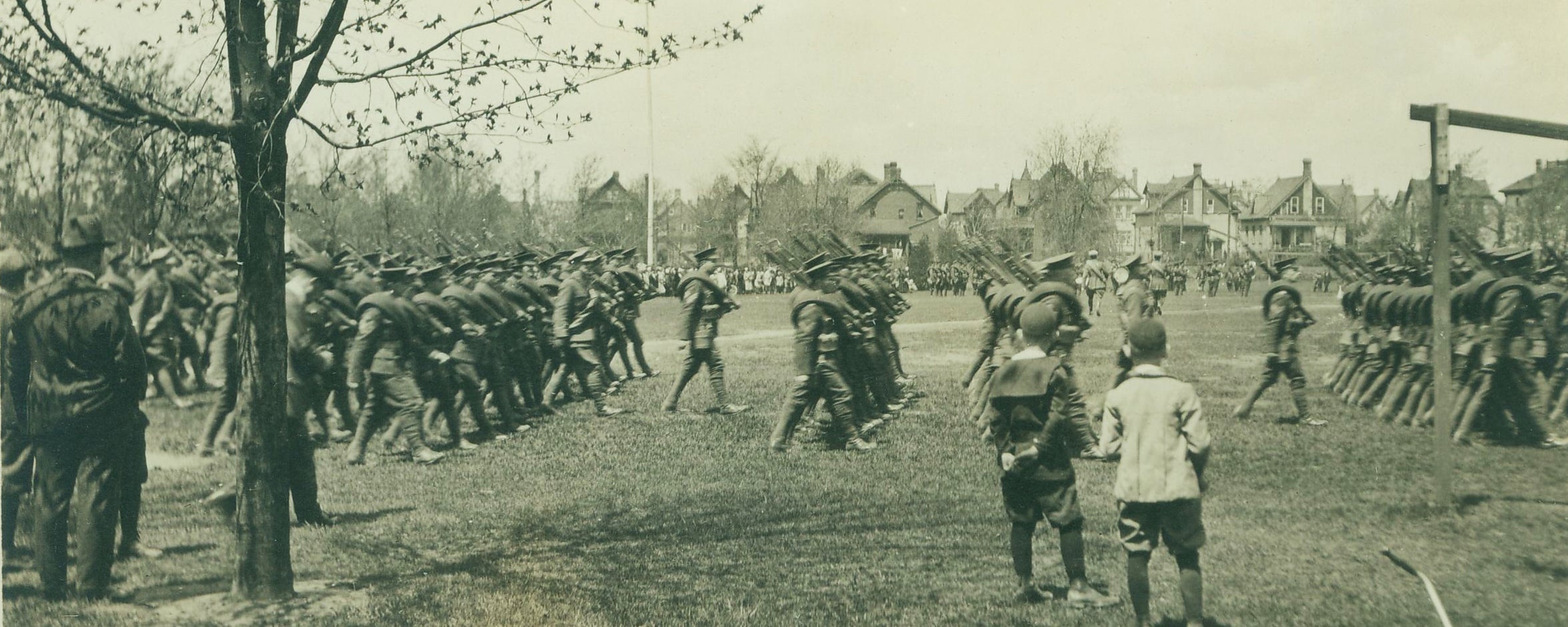The Globe and Mail recently featured a story on the fascinating and contentious history of Berlin, Ontario's renaming in 1916. The story includes comments by the Department of History's Professor Geoffrey Hayes and Professor Emeritus Ken McLaughlin. Prof. Hayes will participate later this week in a public panel co-presented by the Waterloo Centre for German Studies and Kitchener Public Library, Von Berlin to Kitchener: Connotations and Cultures.

Berlin, Ontario. Photo courtesy University of Waterloo Library. Special Collections & Archives. Breithaupt Hewetson Clark collection.
One hundred years after disappearing, Berlin (Ontario) shows signs of revival
By John Allemang, Globe and Mail, August 26 2016
One hundred years ago, a thriving Canadian city disappeared from the map.
As of Sept. 1, 1916, the southwestern Ontario community of Berlin ceased to be. On a grim day in the middle of a war fought to assert Canada’s best values, bullies and xenophobes won a battle for control of our national identity. A city of 19,000 people rooted in its century-old Germanic heritage was forced to deny its own existence, succumbing to the acts of intimidation and accusations of disloyalty perpetrated by small-minded patriots who resisted the truth that Canada could be other than anglo.
The historical reality of Berlin was wiped away from memory, and the city we call Kitchener came into being. This wasn’t just a simple, innocent adjustment of municipal nomenclature like York turning into Toronto or Bytown becoming Ottawa. It was a contrived and calculated switch that served the propaganda needs of Canada’s imperialist leaders: A subversive reference to the capital of the hated Hun could be annihilated from the pristine Ontario landscape and replaced with a tribute to Britain’s recently deceased Secretary of State for War, Lord Kitchener.
A century later, when it is not all that clear that Canadians have much appetite for remembering the finer details of the so-called Great War, a name-change on an Ontario map may seem like little more than a colonial-era fait accompli. Internecine hatred on the home front just doesn’t fit the well-meaning version of Canada’s war that history’s image-builders have manufactured – all those belated feel-good stories of a courageous young nation coming of age and forging its independence through the sweat and sacrifice of Vimy.
But in a country of immigrants and refugees where arguments about loyalty are noisier and more venomous than ever, it’s worth remembering that these fights over national identity have been fought before – and lost by those who wrongly believed their Canada to be an open and tolerant and welcoming place.
That’s certainly what Canada’s Berlin was meant to be in the beginning. Long before this country came into official existence, the Berlin area was a haven for immigrants escaping the ancient enmities and disruptive compulsions of narrow-minded nationalism. [...]